Navigating the world of transportation service losses can be challenging, especially when you find yourself facing unexpected setbacks. Whether it's a delayed shipment or damaged goods, understanding how to address these issues effectively is crucial for your peace of mind. In this article, we'll walk you through a streamlined letter template that can help you communicate your concerns and seek the compensation you deserve. So, let's dive in and explore the best practices for crafting a compelling request!
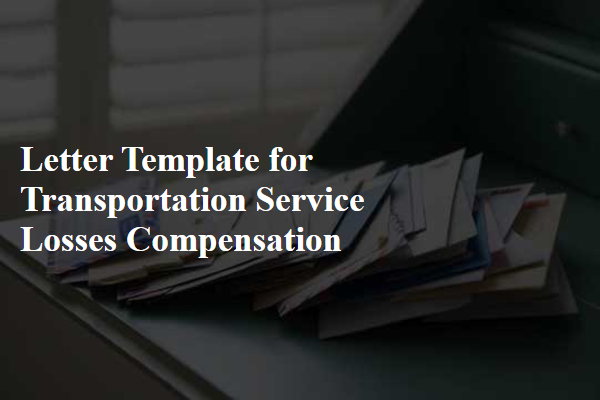
Clear identification of incident details.
In June 2023, a cargo shipment scheduled for delivery to Denver, Colorado, encountered significant delays and damages during transport via XYZ Transportation Services. The shipment, consisting of electronic equipment valued at $50,000, was reported lost when it failed to arrive at the designated distribution center on the 15th. The tracking records indicated that the last known location was the XYZ hub facility in Dallas, Texas, where the package was held for an extended period due to unforeseen mechanical failures of the delivery truck. Furthermore, the incident was not only a logistical setback but also resulted in a loss of revenue for our business, estimated at $20,000, due to missed sales opportunities and client dissatisfaction. This situation necessitates a thorough investigation and compensation claims based on the terms outlined in our service agreement with XYZ Transportation Services.
Contact information for both parties.
Transporting goods requires careful attention to detail, especially when dealing with loss incidents. Clear communication is essential. Relevant contact information includes the name of the sender, along with their address, phone number, and email address. On the receiver's end, details such as the recipient's name, delivery address, contact number, and email must be accurately provided. Documentation should reference the transport company (including their name and representative contact), shipment tracking number, date of shipment, and specifics of the lost items such as descriptions and value. Thorough recording of all parties involved is crucial in initiating a compensation claim.
Description of loss and its impact.
Transportation service losses can significantly disrupt supply chain operations, leading to financial setbacks. For instance, the loss of a shipment valued at $50,000 during transit can hinder business contracts and damage client relationships. Items such as electronics, perishables, or delicate machinery can further complicate the situation, resulting in not only replacement costs but also additional expenses related to expedited shipping and storage. Delays in receiving inventory can lead to decreased sales and potential penalties, particularly if contractual obligations are unmet. In high-demand markets, such as e-commerce or fresh produce distribution, reliable transportation is crucial, and losses can severely impact market competitiveness. Timely compensation for these losses is essential to mitigate financial strain and restore operational stability.
Reference to relevant policies or agreements.
Transportation service losses can lead to significant financial impact for businesses relying on timely deliveries. Many companies reference the Uniform Commercial Code (UCC), which offers protection for breaches of contract involving goods moving between states. Transport providers often cite agreements like the Carmack Amendment, which governs liability for interstate shipping losses. In instances of loss, businesses typically adhere to policies laid out in terms and conditions, specifying compensation limits and claims processes. Documenting losses, including dates, invoices, and tracking numbers, is crucial for expediting claims. Understanding contractual obligations is essential for receiving fair compensation and ensuring adherence to federal regulations in transportation agreements.
Proposed compensation amount and payment method.
Transportation service losses can lead to significant financial impacts on businesses and individuals. When losses occur, it is essential to propose a compensation amount that reflects the total value of lost goods or services. For instance, if a shipment valued at $10,000 was lost during transit, a proposed compensation amount would equate to that value. Payment methods may include bank transfers, checks, or digital payment services such as PayPal, which ensure quick and secure transactions. Clear documentation of losses, such as tracking numbers and invoices, must be provided to facilitate the compensation process and expedite reimbursement efficiently.
Letter Template For Transportation Service Losses Compensation Samples
Letter template of compensation request for transportation service disruptions.
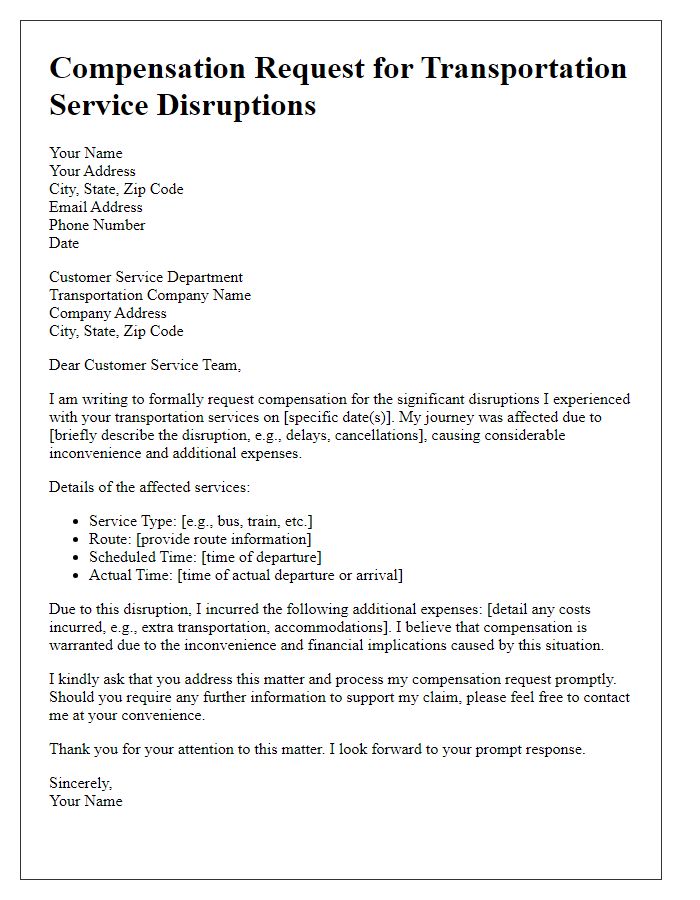
Letter template of claim for losses incurred due to transportation service delays.
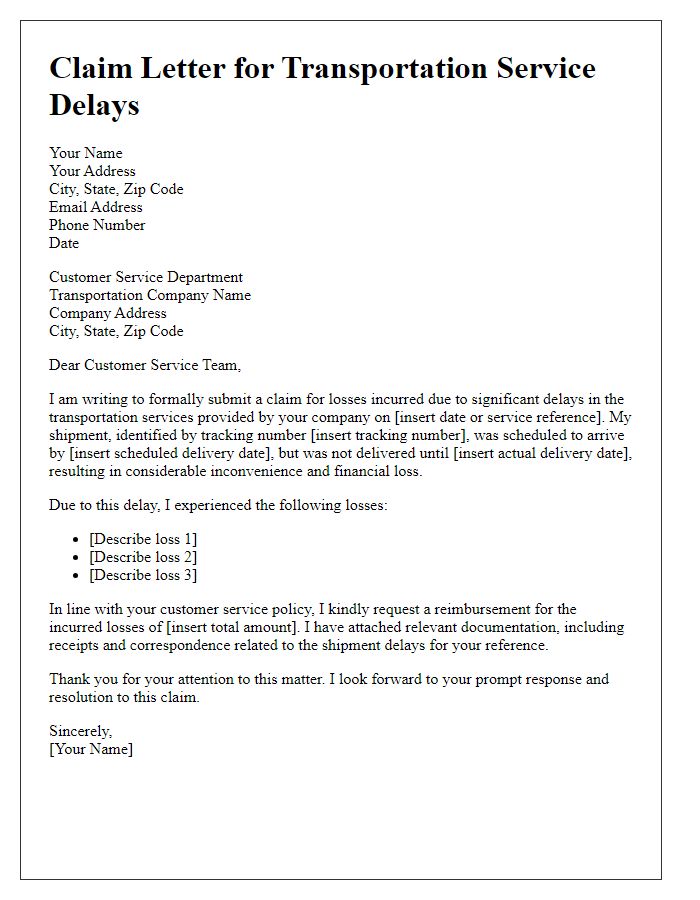
Letter template of appeal for reimbursement following transportation issues.
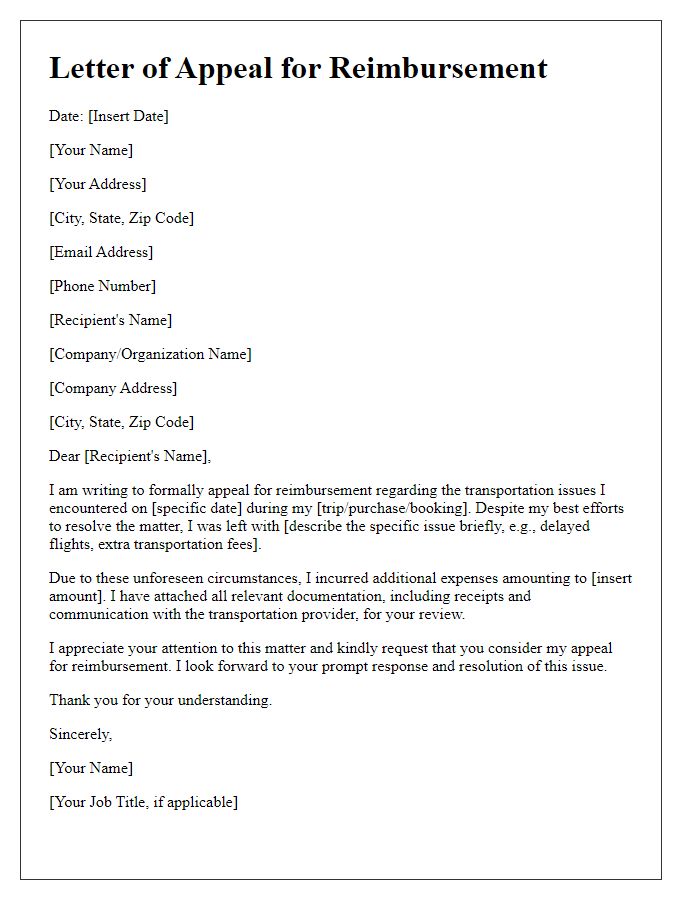
Letter template of grievance for inadequate transportation service compensation.
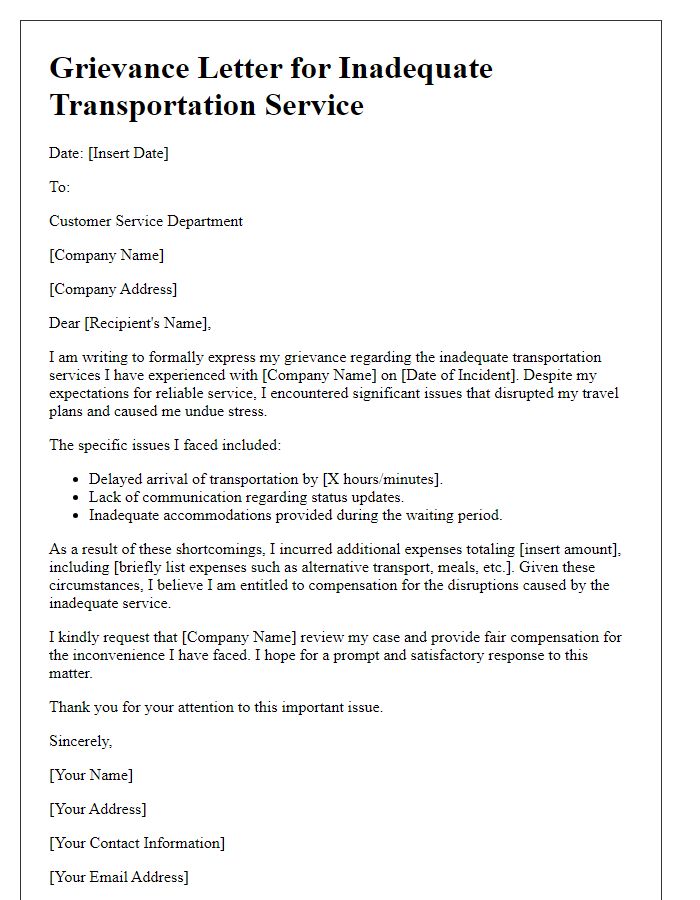
Letter template of refund request for interrupted transportation services.
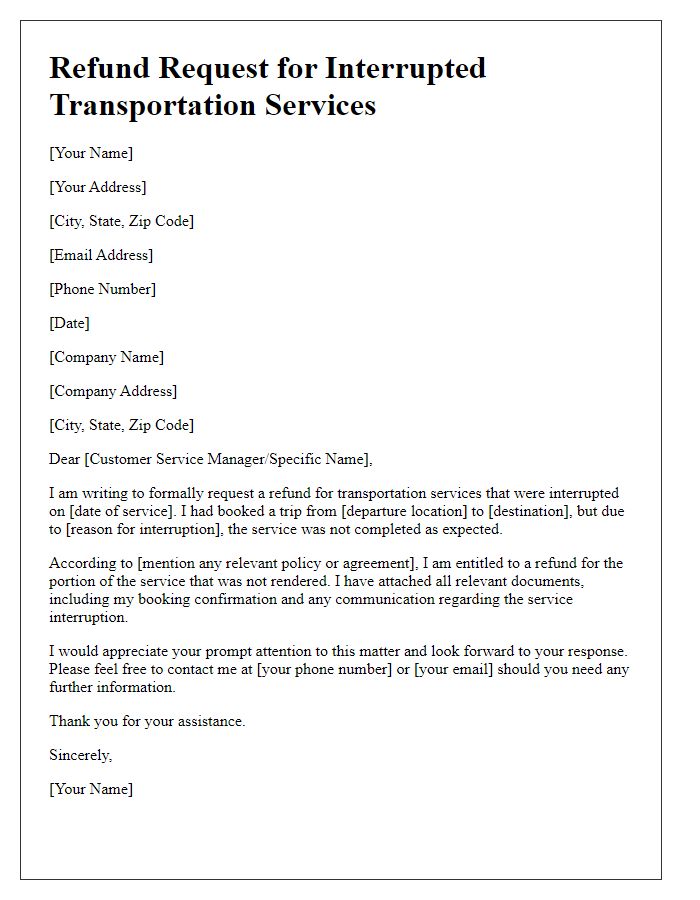
Letter template of demand for compensation related to transport service failures.
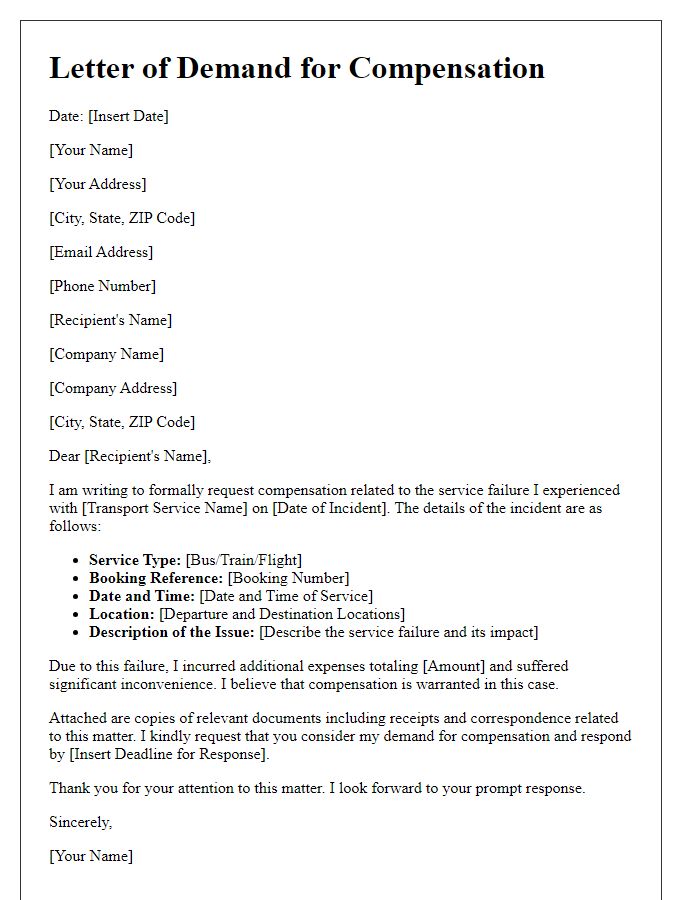
Letter template of notification for losses due to faulty transportation services.
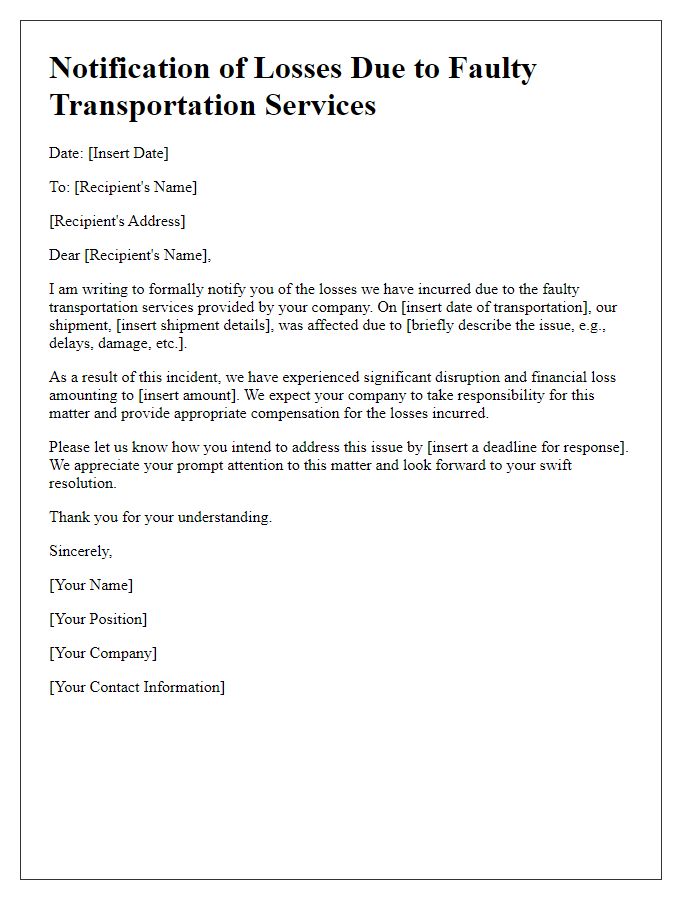
Letter template of inquiry regarding compensation for transportation mishaps.
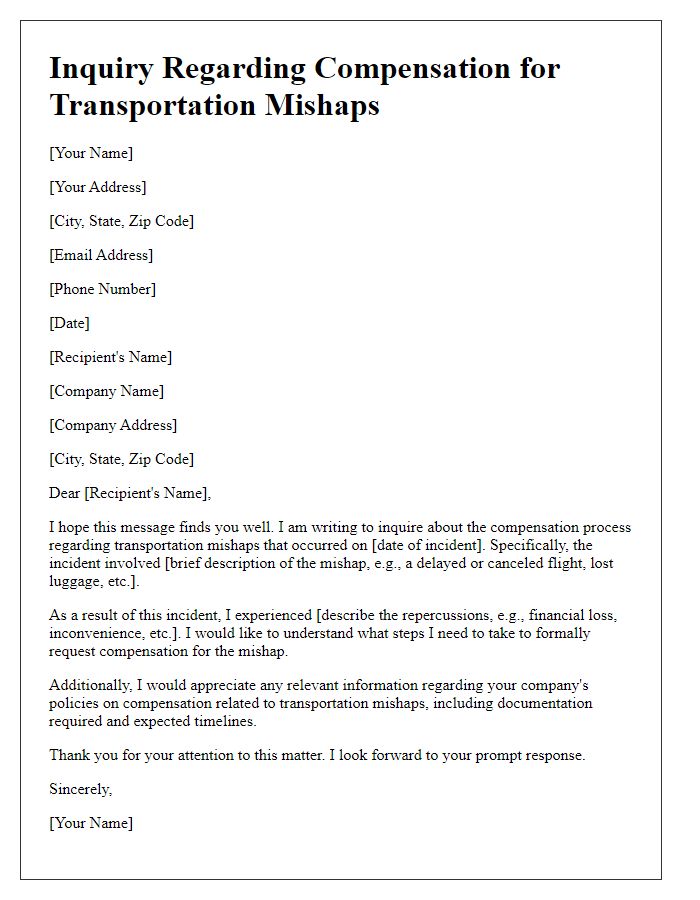
Letter template of formal complaint for unsatisfactory transportation service reimbursement.
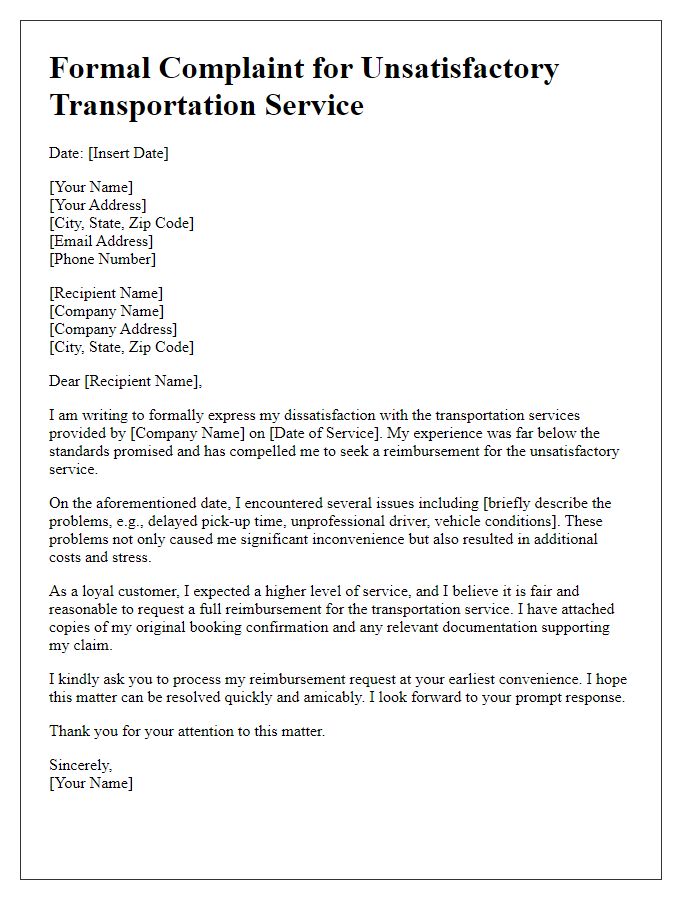

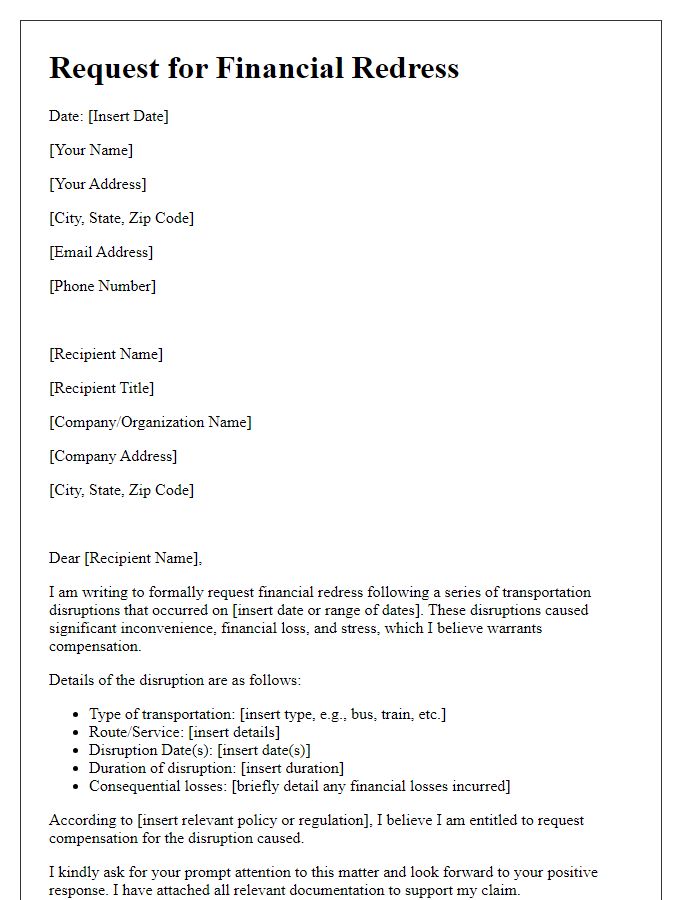

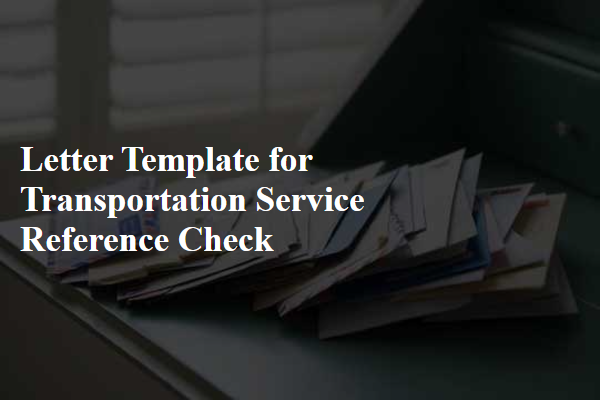
Comments